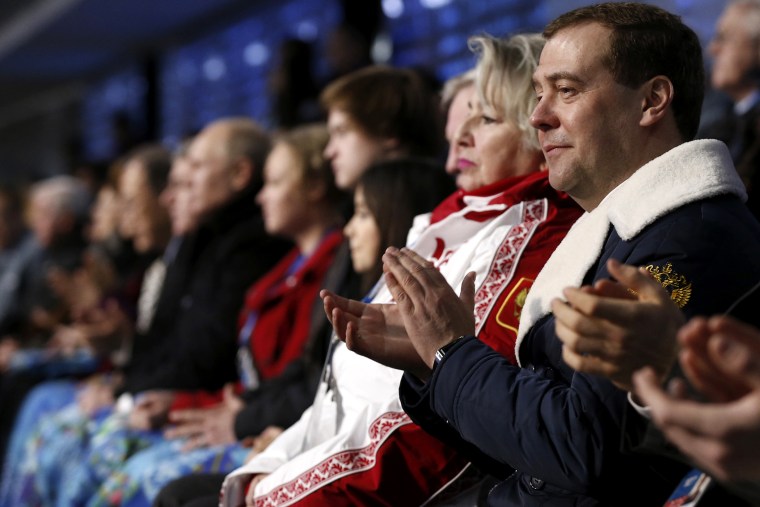The Russian government is doubling down on its anti-gay posture, despite being under an international microscope as host of the 2014 Winter Olympics.
Undeterred by the enhanced attention, Prime Minister Dmitry Medvedev signed a decree this week providing more legal clarity on a law that bans the adoption of Russian children by same-sex couples, or by single people who live in countries where same-sex couples are allowed to marry. (The latter portion addresses the concern that single people could turn out to be gay, and then enter into a same-sex marriage once they go home.) President Vladimir Putin signed the measure last year, around the same time he authorized another law banning the promotion of non-traditional sexual relationships among minors--otherwise known as the “propaganda law.”
The decree, which was published on the government’s website Wednesday, offers detailed legal definitions of basic rules already included in the Russian Family Code, according to Russia Today. An explanatory note states that the ban seeks “to guarantee a full and harmonious development for adopted children and to safeguard their psyche and consciousness from possible unwanted influence such as artificial forcing of non-traditional sexual behavior and the suffering, complexes and stresses that, according to psychologists’ studies, are often experienced by kids raised in same-sex families.”
That Medvedev signed the official decree was unsurprising; experts widely expected him to do so. What was surprising, however, was that he signed it during the Olympics, when many LGBT activists felt confident Moscow would ease its anti-gay stance in light of recent international criticism.
Following Putin’s approval of a series of laws that restrict LGBT rights and encourage homophobic--sometimes violent--expression, many called for a boycott of Russian products and even the Olympics itself. President Obama, as well as the presidents of France and Germany did not attend the Games.
So far, the event in Sochi has gone smoothly, in spite of gay rights protests that led to arrests in Moscow and St. Petersburg just prior to the Opening Ceremony. Openly gay ski jumper Daniela Iraschko-Stolz, who took home the silver medal for Austria on Tuesday, told the Associated Press that she "had a very good welcome like every other athlete." And Dutch speedskater Ireen Wust, also openly gay, said she “got a cuddle” from Putin after winning gold. There have been no major protests on the ground since before the Opening Ceremony.
Russian lawmakers began discussing the adoption ban last year, when it looked like France would soon allow gay couples to marry. In 2012, France ranked fourth by the number of adopted Russian children after the U.S., Italy and Spain, according to Russia Today. Since January, 2013, Russia has banned adoptions by American couples it said out of concern for the safety of Russian children by their adoptive U.S. parents. But as CNN notes, the move was widely seen as retaliation for a law the U.S. passed in 2012 on human rights abusers in Russia.
